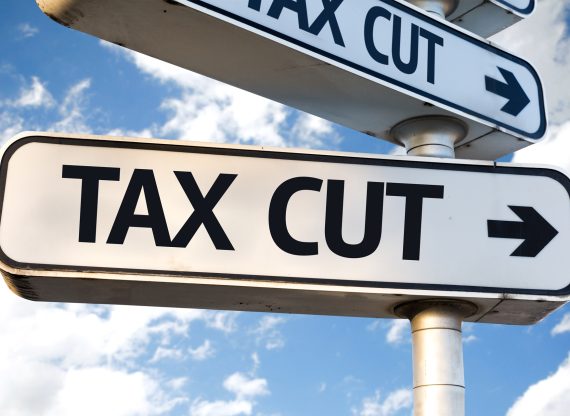Quebec taxpayers deserve a break

Quebec is currently enjoying some of the strongest economic growth in the country. In 2018, it ranked second in Canada with 2.4 per cent GDP growth, behind only Prince Edward Island. The most recent provincial GDP numbers available show the trend continuing, with the province’s economy growing nearly three per cent in the 12 months through mid-2019.
Thanks to this growth, the government has run budget surpluses for the past five years. In today’s provincial budget, Quebec should take advantage of these surpluses to stimulate Quebecers’ productivity by lowering their personal income tax rates.
Over the past five full fiscal years, Quebec’s cumulative budget surpluses have totalled $21.3 billion. The finance ministry expects to add another $10 billion over the next three years. If the past is any indication, that could end up being an underestimate.
Over the past five years the government has contributed roughly half its surpluses — $10.5 billion, to be exact — to the “Generations Fund,” which is dedicated to reimbursement of the debt. This was certainly a responsible decision for the management of public finances in the medium and long term.
But that still leaves a net surplus for the period of $10.8 billion. That’s money the government had not planned to collect, did not budget for, and did not need to cover its expenditures or provide services to the population.
Some people argue the surpluses were caused by budget cuts. But every year since 2015, when Quebec’s public finances moved out of the red, government expenditures have increased. In total over the past five years they grew by 12.1 per cent, which is only slightly less than the 13.0 per cent that inflation and population growth would have required, assuming no efficiency gains or economies of scale. In comparison, government revenues increased by nearly 23 per cent. In other words, the surpluses were almost entirely due to revenues growing much faster than was necessary to maintain spending in relative terms.
Should the government hold onto these extra revenues? Quebecers are still among the highest taxed North Americans. In Quebec in 2018, the tax burden was 38.6 per cent of GDP, compared with an average of 32.2 per cent in the rest of the country. Such a high tax burden reduces people’s purchasing power. Not surprisingly, Quebecers’ disposable income was the lowest in the country in 2017, whereas it had been in the middle of the pack 30 years earlier.
Using the budget surpluses to reduce the income tax burden could have a significant impact on Quebecers’ financial situation. In 2018-2019, the government surplus was $8.3 billion, or over one-quarter of the total tax collected on personal income ($31.8 billion). The government could have reduced personal income taxes by an average of 10 per cent and still generated a surplus, even after the contribution to the Generations Fund.
In Quebec these days there is much talk about catching up to the rest of Canada economically. That almost certainly won’t happen without tax cuts. Studies carried out by the OECD, among others, have shown that economies whose governments intervene and spend the most are generally the least dynamic, with the lowest growth rates.
Like governments everywhere, Quebec’s sometimes seems to forget that taxpayers’ money belongs, not to it, but to taxpayers. From this perspective, an income tax cut is as much a moral imperative as it is sound economic policy. After all, when you give a $20 bill to a cashier to buy a $15 product, you expect to receive change in return. The surpluses of the past five years have in effect shortchanged Quebec’s taxpayers in just that way.
Premier François Legault made prosperity one of the key issues in the past election campaign. Allowing Quebecers to keep more of the fruits of their labour would be an excellent way to stimulate productivity and raise living standards. The province’s favourable budget situation offers an opportunity for the government to give Quebecers a break.
Daniel Dufort is Senior Director of External Relations, Communications and Development and the author of “Budget Surpluses: Quebec Must Give Taxpayers Back Their Money.” The views reflected in this op-ed are his own.

